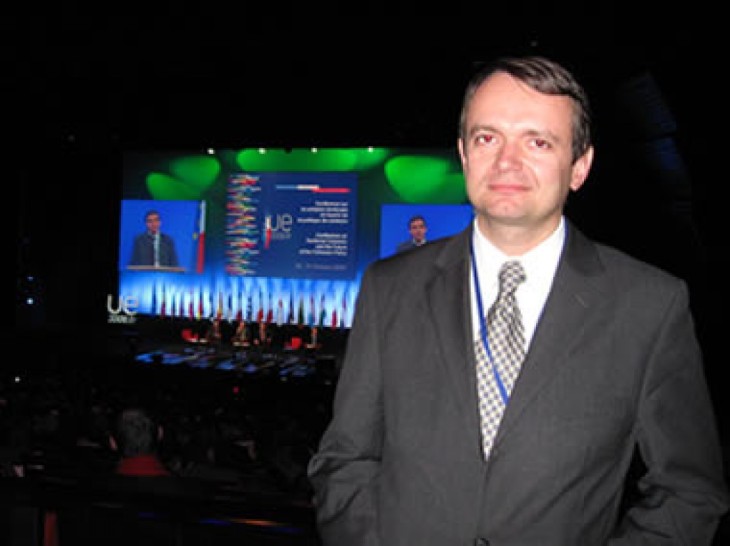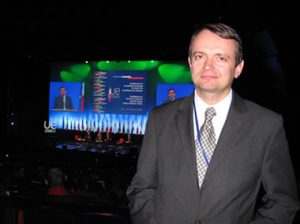Reconcile the Europe of States with the Europe of Regions

Upon the invitation of the Republic of France and the Committee of the Regions, the delegation of the Office for European Affairs has been attending a two-day Conference on Territorial Cohesion and Future of Cohesion Policy of the EU in Paris. The Conference has been divided into four thematic workshops: the Common Agricultural Policy and Rural Development, the sustainable development and climate change, the Lisbon process, and integrated territorial development and governance. The highest representatives of European institutions, including the European Commission, European Parliament, Committee of Regions, and government representatives of the Member States of the European Union have been participating in the Conference.
“Despite the fact that our country is still not a Member State of the EU, it does not mean that we should delay the implementation of measures which are directed towards faster institutional building and development, and which we can initiate now. Current economic challenges at international financial markets have and will have impact on the level of investments, as well as on the structure and level of available EU funds. Therefore, it is our main priority to understand better European decisions which will have impact on our overall economic development and to prepare and position ourselves adequately with our strategic decisions. We cannot do that alone, yet we need regional and other European partners. The Autonomous Province Vojvodina is already closer to EU standards with the development instruments that we have at our disposal (funds, agencies and other institutions). Yet, it is of special importance to increase the speed of implementation of European sectoral policies in Vojvodina and in the whole country, because if we wait longer, the costs of subsequent adaptation will be considerably higher. The basis of the Lisbon Strategy is to make the EU the most dynamic and competitive knowledge-based economy in the world capable of sustainable economic growth with more and better jobs and greater social cohesion. The key role of local and regional level and a greater role of the region in devising the overall EU development strategy have specially been emphasized. We have to reconcile the Europe of States with the Europe of Regions and Citizens. European potentials will not be used fully if there are no stronger territorial links. Therefore, it is very important that future regions of our country design their own development initiatives in the shortest possible time. During the Conference, special emphasis has been given to new measures in rural policy. The Europe Agricultural Fund for Rural Development was established last year, and it is separate from the European Regional Development Fund (ERDF) and European Social Fund (ESF). I would like to mention that €70 billion of the ERDF has been allocated for the development of rural areas in this period. Hence, the country’s strategic priority is to offer a real chance and full support to the economic development of rural and neglected areas. In the majority of those areas, agriculture is naturally the backbone, however, it cannot be the only economic and development engine. In addition to rural policy, I would like to mention energetics. If we had trained people, who had great understanding of European sectoral policies, we would also be given great opportunities for the use of new and renewable energy sources. Our energy safety also depends on new technologies by means of which natural potentials and by-products of other branches, e.g. agriculture and forestry, would be used. It is important to improve the economic use of our natural, cultural and other resources by using new EU funds. In addition, the importance of new instruments of territorial cooperation, such as European Grouping for Territorial Cooperation (EGTC), the creation of new regions and strengthening of cross-border cooperation have also been emphasized”, said Predrag Novikov, Director of Office for European Affairs.





